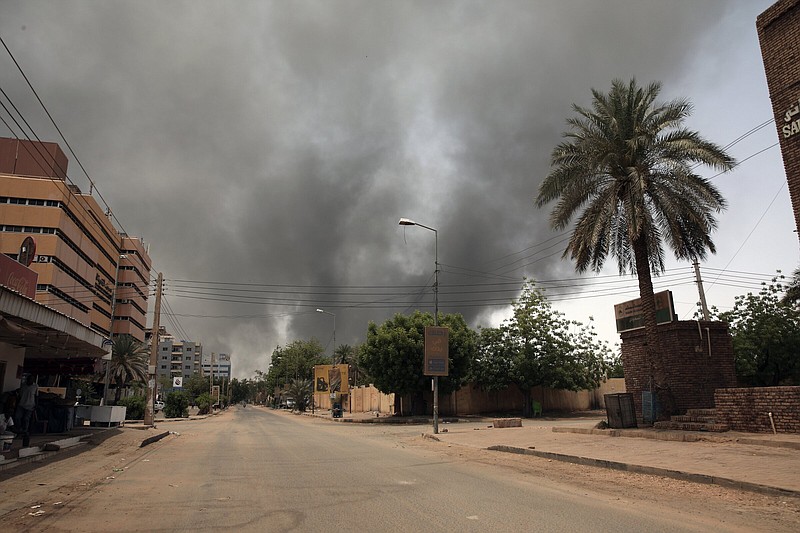Khartoum’s largest buildings are being destroyed
The violence in Sudan began on 15 April, triggered by a power struggle between the leaders of the Sudanese army and the paramilitary Rapid Support Forces.
It followed days of tension as members of the paramilitary Rapid Support Forces were redeployed around the country in a move that the army saw as a threat.
The Sudan War Monitor, which provides analysis of the conflict, said the RSF had attacked areas controlled by the army on Saturday, including an office block at the justice ministry. Several government buildings are reported to have caught fire as a result of the attack.
Attacks on army premises continued into Sunday, witnesses told AFP news agency.
One of the country’s largest buildings, the Greater Nile Petroleum Oil Company, has been engulfed in flames, videos posted on social media showed today.
It is also reported that another battle is taking place in Il Obeid city, which is 350 kilometers away from Khartoum.
Residents in a southern district of the city – where the army was targeting RSF bases – told AFP they heard “huge bangs” as they woke up.
Health authorities announced on Sunday that all the main hospitals in Khartoum – as well as the Darfur region – were out of service.
According to a group of pro-democracy lawyers, the fighting had killed “dozens of civilians” in Khartoum since Friday.
Fighting was also reported in the city of El-Obeid, some 400km (250 miles) south of the city.
The RSF has been fighting to take control of the capital, and the military’s air strikes have been aimed at weakening RSF positions.
The conflict has killed around 7,500 people and displaced more than five million, including 2.8 million people who have fled constant airstrikes, artillery fire and street fighting in Khartoum’s densely populated villages.
https://www.eritreanpress.today/





